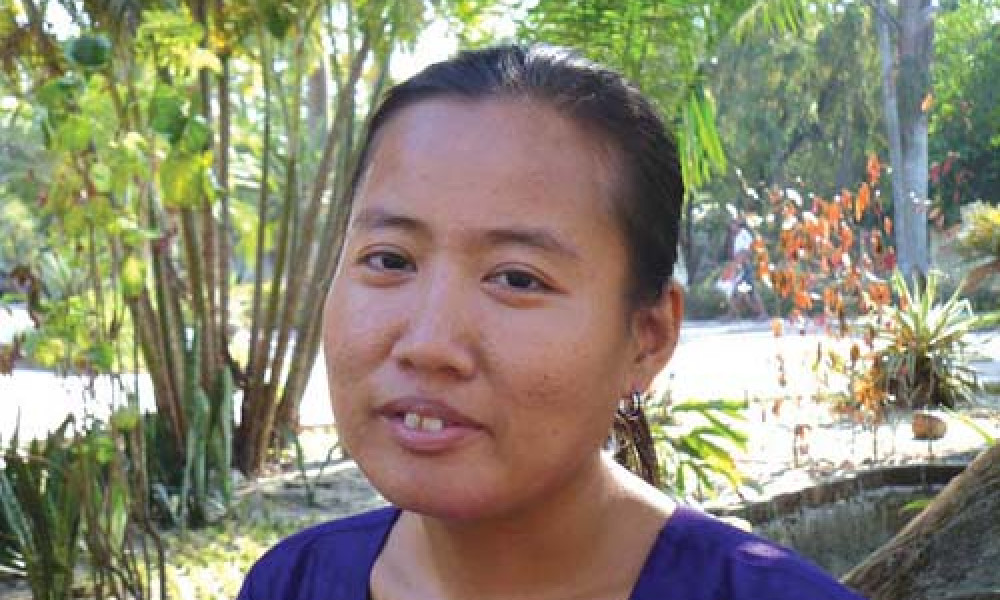In 1999, Sandar Soe started work in a garment factory in Myanmar. The working conditions included 12-hour days, low pay and no health and safety standards. So, leaving her family behind, Sandar moved to neighbouring Thailand where her pay and the working conditions, while still challenging, were much better – because of the union movement.
“The confederated trades union would often come to visit my work site. They would provide us with training on worker rights and how to be involved,” Sandar said.
While working in Thailand was better than in Myanmar, where Sandar had witnessed workers being mistreated and imprisoned, she still wanted to be with her family in Myanmar. But Sandar knew if she went home, she needed to help make change in Myanmar.
Civil disobedience
In September 2006 Sandar joined the union movement and went back home. After her return, Myanmar underwent three military coups, which saw civil rights curtailed. As a member of the Confederation of Trade Unions, Myanmar (CTUM), Sandar joined other unionists in starting a civil disobedience movement.
The military responded by issuing a warrant for her arrest, and Sandar spent 18 months in prison for high
treason. The CTUM continued its work to improve workers’ conditions and protest against the regime until
1 February 2021, when there was a complete military takeover.
For Sandar, this meant having her passport voided, and not being able to travel overseas to attend
union meetings. The regime raided Sandar’s home and the CTUM’s offices, it terminated her citizenship,
and arrested and tortured many of her colleagues.
Escape to Aotearoa
It was becoming too unsafe for Sandar to stay in Myanmar.
“I wanted to continue my work but I feared if I stayed, I would end up in jail or worse, dead,” she says.
To help Sandar leave Myanmar, CTMU worked with the New Zealand Council of Trade Unions and UnionAID to convince the New Zealand government to allow Sandar to live in New Zealand under the Human Rights Defender Programme.
For Sandar, leaving behind her family is hard, but living under a military regime was not an option.
“In Myanmar, we are just trying to exercise our democratic rights, but we have no civil liberty. In New Zealand you are very lucky, but if you do not vote, you are not deciding for your future. If you are experiencing dissatisfaction, or hardship, to not vote is just accepting these things.”
To help Sandar and the people of Myanmar – visit the UnionAID website: unionaid.org.nz
